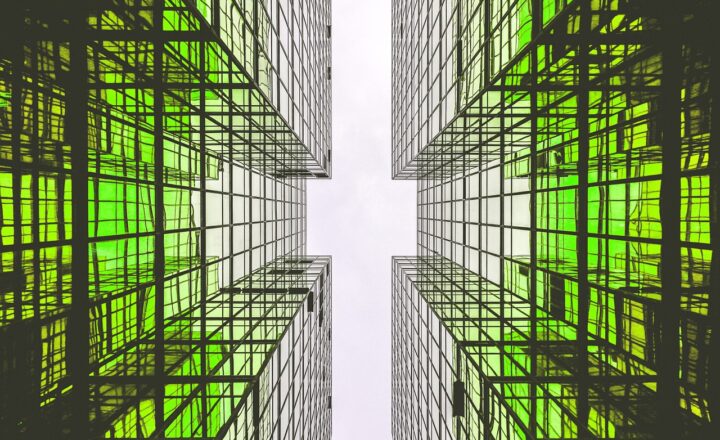How Environmental Guilt Is Affecting Millennials and Gen Z
November 10, 2024

As climate change becomes an increasingly pressing issue, younger generations such as Millennials and Gen Z are feeling the weight of environmental guilt. This phenomenon is characterized by the anxiety and moral distress associated with the environmental degradation that past generations have contributed to and the seemingly insurmountable challenges that lie ahead. Environmental guilt can lead to significant changes in behavior, mental health issues, and even a shift in societal values.
Understanding Environmental Guilt
Environmental guilt arises when individuals feel responsible for the harm caused to the planet, often stemming from actions that contribute to pollution, consumption, and climate change. Unlike previous generations, Millennials and Gen Z have been raised in an era where information about environmental issues is readily accessible. This awareness can produce a sense of guilt, as many feel they must take on the responsibility of rectifying the damage caused by older generations.
Key Factors Contributing to Environmental Guilt:
1. Continuous Exposure to Environmental Narratives:
The prevalence of climate-related news, documentaries, and social media campaigns has kept environmental issues at the forefront of young people’s minds. Daily reminders of polar ice caps melting, deforestation, and species extinction contribute to this overwhelming guilt.
2. Social Pressure and Activism:
With the rise of movements like Fridays for Future and Extinction Rebellion, the pressure to be environmentally conscious is greater than ever. Many young people feel compelled to participate in activism, leading to feelings of inadequacy if they cannot meet what they perceive to be societal expectations.
3. Awareness of Lifestyle Choices:
As eco-friendly alternatives gain popularity, the pressure to conform to sustainable practices is ever-present. Choices about consumption, travel, and waste management contribute to feelings of guilt when individuals fail to live up to these standards. This can lead to a cycle of anxiety and disappointment, where minor slip-ups feel monumental.
Impacts of Environmental Guilt on Mental Health
Research indicates that increasing environmental guilt correlates with various mental health issues, particularly anxiety and depression.
How Environmental Guilt Affects Mental Health:
– Eco-Anxiety:
Many Millennials and Gen Z individuals experience eco-anxiety—a chronic fear of environmental doom. This form of anxiety can lead to feelings of helplessness, isolation, and even burnout when faced with the enormity of the climate crisis.
– Feelings of Guilt and Shame:
Constantly feeling guilty for perceived inaction can lead to shame, which eventually may inhibit individuals from taking any action at all. This paralysis can make it difficult to find ways to contribute positively to environmental change, creating a negative feedback loop of frustration and guilt.
– Social Comparison:
Social media exacerbates feelings of guilt as people compare their choices and lifestyles with others. When individuals see peers engaging in sustainability efforts or sharing their achievements, it can trigger feelings of inadequacy and despair for those who feel they are not doing enough.
Behavioral Changes Driven by Environmental Guilt
Interestingly, environmental guilt can manifest in a range of behavioral changes among Millennials and Gen Z.
Positive Behavioral Changes Include:
– Increased Focus on Sustainability:
In response to feelings of guilt, many young people are adopting more sustainable lifestyles. This includes buying second-hand goods, minimizing waste, and supporting environmentally conscious companies.
– Advocacy for Change:
Some channel their environmental guilt into activism. Encouraging legislation for climate action or participating in organizations dedicated to environmental protection can assuage feelings of guilt and transform them into proactive behavior.
– Mindful Consumption:
Understanding the impact of consumer choices has led many to embrace minimalism and intentional purchasing. This shift toward prioritizing quality and sustainability over quantity often helps reduce feelings of guilt.
Finding a Balance: Coping with Environmental Guilt
While feeling compelled to address environmental issues is commendable, individuals must also find ways to cope with feelings of guilt to maintain their mental health.
Strategies for Coping with Environmental Guilt:
– Recognize Limitations:
It’s essential for young people to understand that they can only do what is feasible within their circumstances. Recognizing limitations can relieve the burden of expectation.
– Practice Self-Compassion:
Encouraging self-kindness is vital. Allowing oneself to make mistakes and learn from them can empower individuals to be more forgiving about their environmental choices.
– Seek Community Support:
Connecting with like-minded individuals can create a supportive environment where experiences, challenges, and triumphs can be shared. Group support fosters mutual understanding and lessens individual burdens.
– Focus on the Positive:
Concentrating on the positive strides one can make, rather than those not taken, can improve morale and motivate further action. Achievements, no matter how small, should be celebrated as contributions toward a greater cause.
Conclusion
Environmental guilt is a complex issue significantly affecting the lives of Millennials and Gen Z. While it can drive positive change and greater awareness of sustainability, it can also lead to detrimental effects on mental health if not managed properly. Finding a balanced approach to environmental responsibility—one that allows for growth, learning, and compassion—will empower these generations to tackle environmental challenges effectively without succumbing to the weight of guilt.
In an age where every individual’s contribution matters, it’s vital to focus on the journey of sustainable living rather than perfection. By fostering a mindset of resilience and community support, Millennials and Gen Z can navigate their feelings of environmental guilt while embracing their role as catalysts for change.








